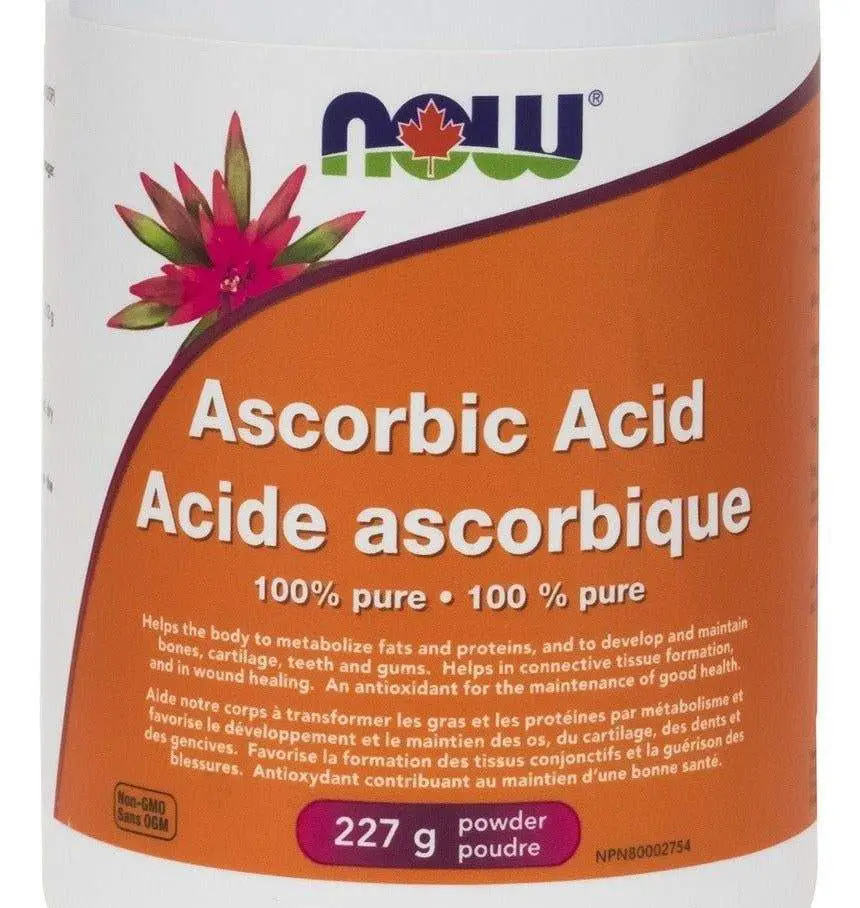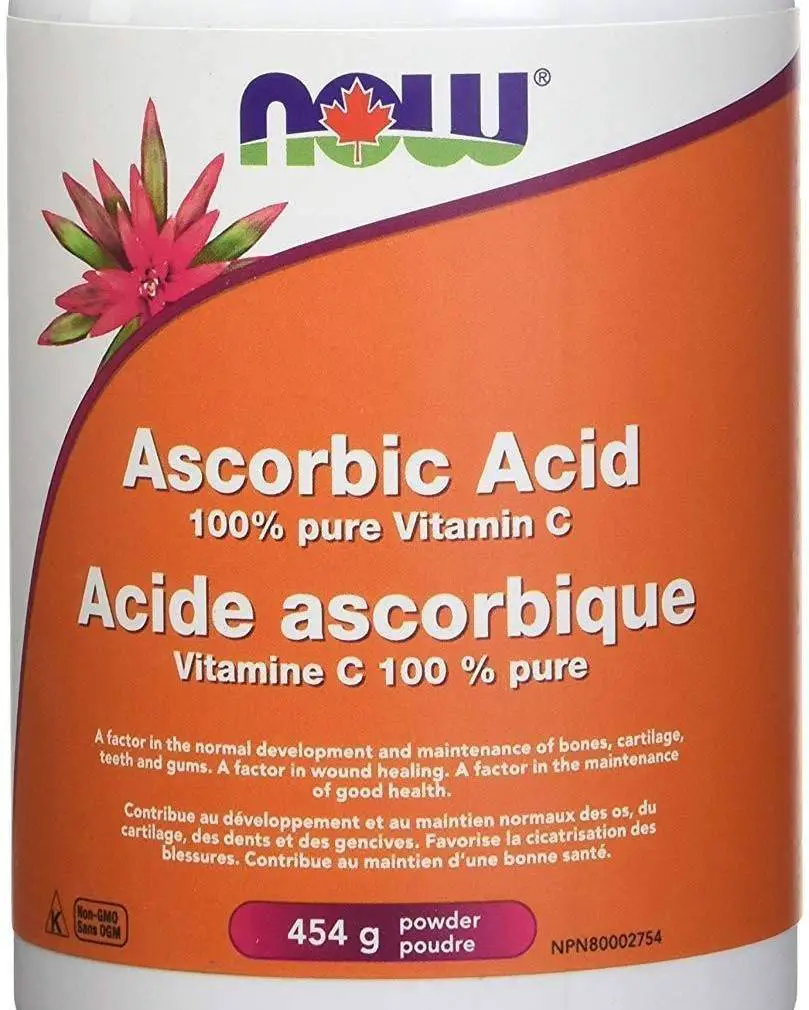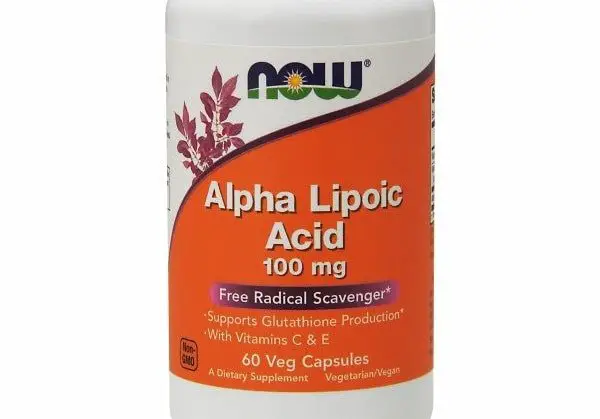Ascorbic acid is an essential ingredient for the formation of cartilage, blood vessels, bone collagen, and muscle. It is also essential for the healing of the body.
This acid is an antioxidant that protects your cells from the damaging effects of free radicals, which are molecules formed when you are exposed to tobacco smoke, radiation from the sun, or your body breaks down food or other sources.
These free radicals may contribute to cancer, cardiovascular disease, and other disorders. Vitamin C (ascorbic acid) aids in iron absorption and storage.
Because your body does not generate this acid, you must consume it through food. Berries, citrus fruits, tomatoes, potatoes, cabbage, peppers, spinach, and broccoli all contain C vitamins.
Ascorbic acid can also be taken orally, often in the form of chewable pills and capsules. A severe deficit of this acid can result in scurvy, which causes bleeding gums, anemia, impaired wound healing, and bruising.
You should be aware that vitamin C supplements might not have the same advantages as antioxidants found in food if you take them for their antioxidant properties.
Ascorbic acid is advised at 75 milligrams per day for adult women and 90 milligrams per day for adult men.
Contents
Does It Lead To Weight Gain?
Ascorbic acid does not directly contribute to fat oxidation or fat loss. However, it is associated with body mass index and waist circumference.
According to the findings of one study (BMI), low plasma ascorbic acid concentrations are associated with a higher body mass index. BMI is the ratio between an individual’s height and weight. A BMI of thirty or greater indicates obesity.

In addition, the study revealed that individuals with inadequate vitamin C levels burn approximately 30% less fat during moderate activity than those with adequate vitamin C levels.
In other words, a deficiency in vitamin C might cause resistance to fat mass loss, leading to an increase in fat stores and an increase in body weight.
Benefits
The following are some benefits according to studies on the usage of ascorbic acid (vitamin c) for specific conditions:
Normal Cold
Vitamin C pills used orally will not prevent the common cold. The benefits of taking vitamin C supplements frequently to minimize the duration or severity of a cold are likewise negligible, according to the available evidence.
Cancer
A diet abundant in vegetables and fruits may reduce the incidence of several types of cancer, including lung, breast, and colon cancer.
However, it is unclear if this protective effect is due to the food’s ascorbic acid concentration. It does not appear that oral vitamin C pills have the same advantage.
Feel Energetic
In relatively short research, six of seven men with low vitamin C levels reported feeling fatigued and irritable. This shows a connection, but other factors may also play a role.
Two hours after receiving vitamin C, 141 office workers reported feeling less fatigued, particularly if their levels were low to begin with. The effect then remained for the remainder of the day.
Anemia deficiency in iron
In anemia, the blood lacks sufficient red blood cells to transport oxygen from the lungs to the body’s tissues. The most prevalent form of anemia is caused by a lack of iron, which your body needs to produce red blood cells.

This acid is known to aid in the absorption of certain nutrients. This resulted in a long-standing practice among healthcare practitioners of recommending vitamin C and iron supplements for the treatment of anemia.
According to a 2019 study, vitamin C boosted iron absorption by 67%.
Eye Disorders
Taking vitamin C supplements orally in combination with other minerals and vitamins appears to decrease the progression of age-related macular degeneration.
According to some studies, people who consume more vitamin C may be less likely to develop cataracts.
Immunity
Since vitamin C has multiple functions relating to your immune system, it shouldn’t come as a surprise that you are more susceptible to illness and may have a more difficult time recovering.
There is some evidence that it can protect against diseases, including pneumonia and bladder infections. It may potentially reduce your risk of heart disease and certain cancers.
Antioxidant Function
Vitamin C is an antioxidant, which means that it is one of the numerous natural compounds that may help treat, delay, or prevent certain health issues. They accomplish this by neutralizing free radicals, which are unstable chemicals that can cause cell damage and disease.
When there are many free radicals in the body, a condition known as oxidative stress can develop (OS). Several chronic diseases have been connected by research to OS.
By preventing or minimizing OS, these and other health issues may be avoided:
- Boosting your immune system
- reducing irritation
- Maintaining cellular health
However, research into the use of antioxidants to cure or prevent certain diseases has yielded inconsistent results. Some forms of free radicals are more difficult for antioxidants to neutralize.
Gout
Gout is a prevalent and excruciatingly painful form of arthritis that primarily affects the great toes. It is caused by an excess of uric acid (a waste product) in the blood, which leads to the formation of crystals in the joints.

The crystals then induce inflammation, which results in excruciating attacks.
Several studies have demonstrated that vitamin C can prevent gout by reducing uric acid levels in the blood. This may be attributable, at least in part, to its antioxidant properties. Significant oxidative stress appears to increase uric acid levels in humans.
Aids In Weight Loss
Several putative mechanisms exist through which vitamin C may promote weight loss.
Initially, vitamin C is an effective antioxidant. After exercise, vitamin C can mitigate the oxidative stress caused by exercise. This may help you burn more calories by accelerating your metabolism.
Iron absorption is another potential mechanism through which vitamin C may aid weight loss. Vitamin C is known to facilitate iron absorption. Iron is required to transport oxygen to the muscles; oxygen enables the muscles to function more effectively and burn more fat.
Conclusion
Researchers have discovered that vitamin C appears to have a variety of crucial roles in the body. Possibly the most advantageous element is its antioxidant action.
So, based on the information above, it is clear that ascorbic acid does not lead to a gain in weight. However, it may help in reducing belly fat if consumed in moderation.

